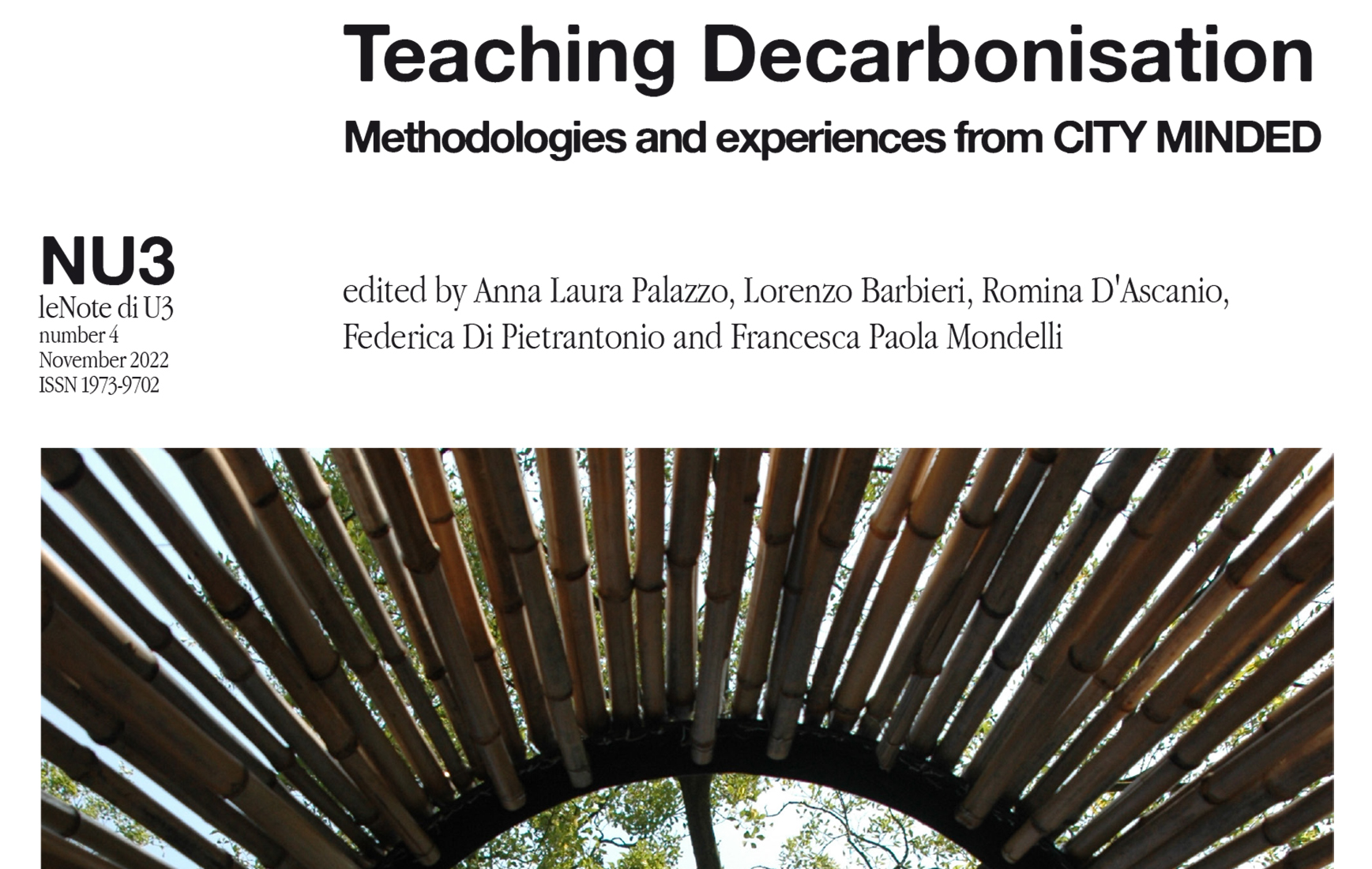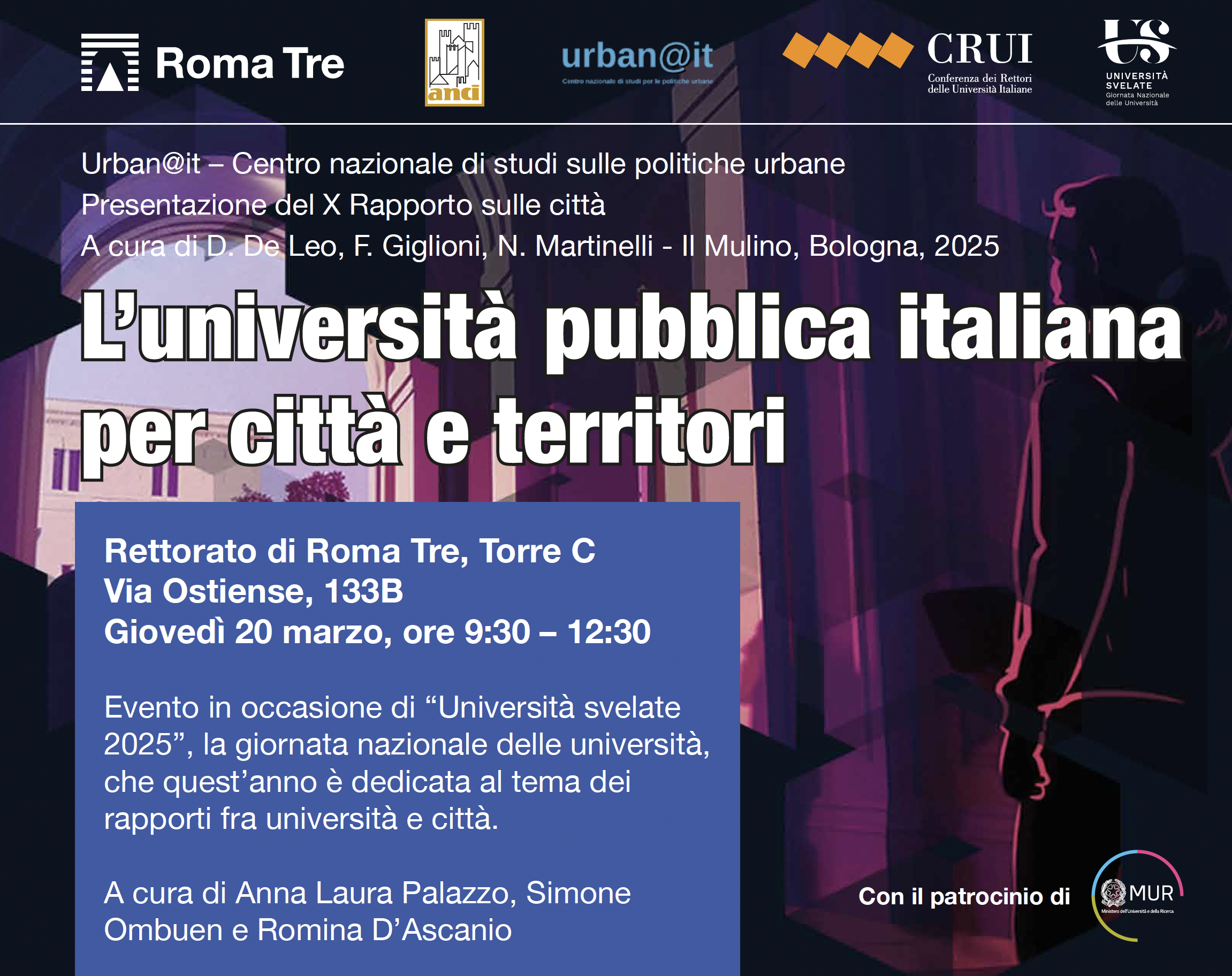
download the issue | HD version
download the table of contents
November 2022
This issue of leNote di U3 brings together the results of the Erasmus+ project CITY MINDED.
It aims to promote learning opportunities in order to produce professional profiles that are able to pursue decarbonisation by conducting proper actions resolve environmental challenges, whilst ensuring a good quality of life for citizens.
The project involves five European partners – three Universities and two Energy Agencies: the lead partner, IRENA – Istrian Regional Energy Agency (HR); the Italian Universities of Roma Tre – Department of Architecture and Siena – Department of Earth, Environmental, and Physical Sciences (IT); the University ‘Pablo de Olavide’ – Department of Geography (ES); and the Malta Intelligent Energy Management Agency (MT).
Lead Partner Foreword
Today, around 75% of the European population lives in urban areas and an estimated prediction is that this number will rise up to 80 % in 2050. Sustainability of the cities and urban areas is a key challenge in Europe and ensuring a sustainable urban environment is a crucial task for all actors. Cities are leading Europe’s economy and are key players in Europe’s transition towards a low-carbon economy. The decarbonisation measures needed to ensure carbon neutrality of the urban areas include different topics and possible solutions and actions. The best place to take action is the local level and by conducting proper actions resolve environmental challenges, whilst ensuring a good quality of life for their citizens. In order to implement proper actions, it is crucial that the actions are developed, organised and implemented by professionals who are able to coordinate actions from different sources.
The lack of such type of processional profiles was the trigger to prepare the project CITY MINDED – City Monitoring and Integrated Design for Decarbonisation. The three-year project is funded under the Key Action 203 – Strategic Partnerships for higher education of the Erasmus+ Programme and it started with its implementation at the end of 2019.
This publication is a unique opportunity to share the knowledge on how the workshops were structured and conducted, particularly in the situation when the activities had to be adapted to the pandemic, as was the case in Siena, Rome and Seville. The workshop in Malta was carried out in person, so this provides the opportunity for a comparison.
Erasmus+ is the EU Programme in the fields of education, training, youth and sport. It is designed to support Programme Countries’ efforts to efficiently use the potential of Europe’s talent and social assets in a lifelong learning perspective, linking support to formal, non-formal and informal learning throughout the education, training and youth fields. The Programme also enhances the opportunities for cooperation and mobility with Partner Countries, notably in the fields of higher education and youth. Within this framework, transnational Strategic Partnerships aim to support the development, transfer and/or implementation of innovative practices as well as cooperation, peer learning and exchange of experience among different types of organisations involved in education, training and youth at the European level.
The CITY MINDED project involves five European partners – three Universities and two Energy Agencies: the lead partner, IRENA – Istrian Regional Energy Agency (HR); the Italian Universities of Roma Tre – Department of Architecture and University of Siena – Department of Earth, Environmental, and Physical Sciences (IT); the University ‘Pablo de Olavide’ – Department of Geography (ES); and the Malta Intelligent Energy Management Agency (MT).
Partners were chosen according to their experience in fields related to environmental sustainability in urban areas, and with the twofold objective to ensure a wide geographical coverage (and thus a variety of urban contexts with diverse characteristics) and to address different thematic areas (geography, architecture and urban design, environment, energy) in order to gather together diverse approaches to the project topic, and take advantage of cross-disciplinary interaction and sectorial expertise.
The different expertise brought by participating organizations were exploited during the project implementation to:
– Define a draft methodology to address the multiple facets of decarbonisation within multi-disciplinary workshops,
– Test the draft methodology within 3 local workshops touching different target cities (Seville, Siena, Rome), each one involving HEI students from the hosting partner university, experts from a partner organisation and local stakeholders in the drafting of city decarbonisation roadmaps for target neighbourhoods/districts,
– Fine-tune and integrate the draft methodology according to the results of the workshops,
– Create a set of educational tools, including a modular online course on urban decarbonisation, a toolkit for teachers to replicate the CITY MINDED workshops, and an open web platform where all the materials produced by the project will remain freely accessible to students and professors beyond the project lifetime,
– Carry out a 2-weeks Intensive Course in Malta, involving students and teachers from participating universities in the drafting of a sustainable development agenda for a target area in the city of Valletta.
Participants included students, enrolled in geography, urban planning, architecture and environment courses, who experienced real life planning processes in a stimulating, international and multidisciplinary learning environment, acquired trans-disciplinary competences and improved their ability to deal with complex, interdisciplinary urban issues, to work in team, to correctly interpret the urban context and identify shared solutions to common problems. This is expected to resulting, in the long term, in their increased employability in both the public and the private sector, as energy managers, consultants, urban planners, policy makers, etc. Participating teachers/trainers also benefited from the innovative educational experience set up by the project, by testing a teaching practice that can be replicated in regular academic and training activities, increasing the appeal and relevance of their courses.
This publication will be a unique opportunity to share the knowledge on how the workshops were structured and conducted, particularly in the situation when the activities had to be adapted to the pandemic situation. It will be interesting to compare the reflections on the teaching and learning experiences in online and the real environment and how the initially developed draft methodology was adapted according to the results of each workshop.







